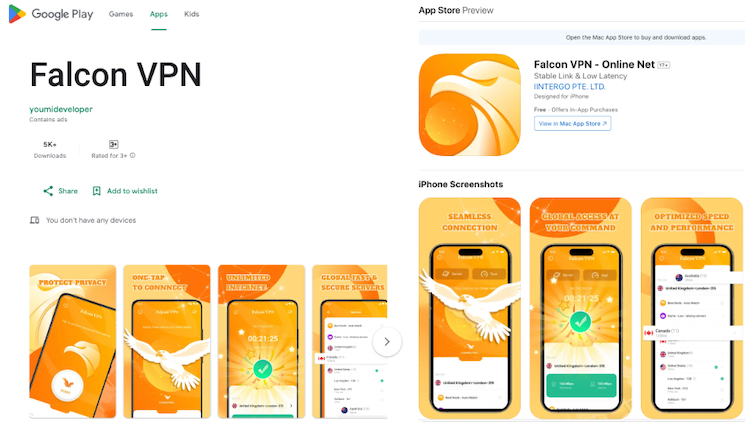Recent headlines have cast a shadow on Telegram, as its founder and CEO, Pavel Durov, faces multiple charges, including allegations of fraud, drug trafficking, and involvement in organized crime. These reports have reignited debates about the unmoderated nature of the platform and raised an essential question—how secure is Telegram for its users? The answer largely depends on how you use it and the measures you take to protect yourself.
Telegram, an innovative messaging app launched in 2013 by Pavel and Nikolai Durov, allows users to exchange texts, media, and files via the cloud. Known for its open-source design, Telegram also supports the creation of public and private communication channels. The app has soared in popularity, boasting over 500 million users globally, in part due to its perception as a secure communication tool. Its popularity is especially notable in countries like Iran, Russia, and Indonesia, where governments have tried—and often failed—to censor or ban the app entirely.

What Makes Telegram Unique?
At its core, Telegram functions as a versatile messaging platform akin to WhatsApp or Signal, allowing private one-on-one conversations or group chats. However, what sets Telegram apart is its ability to create public "channels," where users can broadcast information to unlimited subscribers. This feature has made Telegram essential for its users in countries with heavy censorship, as it becomes a powerful tool for sharing news, organizing protests, or voicing dissent.
Public channels operate under aliases and share unique URLs, making it easy for anyone to join, follow, or contribute to conversations. While largely beneficial for open communication, the same feature has been exploited for malicious purposes, including misinformation campaigns, illegal activity, and extremist propaganda.
Is Telegram Really Secure?
Telegram is often associated with strong encryption and high-security protocols. However, the security picture is more nuanced than that perception suggests. Not all Telegram interactions are protected equally, and its encryption is not automatically enabled for all communication types.
- No End-to-End Encryption by Default: Telegram provides end-to-end encryption (E2EE) for its “secret chats” feature. However, this is only available for one-on-one chats and is not enabled by default. Users must manually start secret chats, as there is no global setting to apply E2EE across all communications. Even worse, the option to enable “secret chats” is not prominently displayed, leading many users to overlook its importance.
- Non-Encrypted Channels and Group Chats: Public channels and group chats, which make up a significant portion of Telegram’s appeal, do not use E2EE. Without this protection, any messages shared in these spaces are vulnerable to surveillance, breaches, or even access by Telegram itself.
- Encryption Protocols: Telegram uses an in-house protocol called MTProto for securing communications. While earlier iterations of this protocol faced harsh criticism for security vulnerabilities, the upgraded MTProto 2.0 has been formally verified as cryptographically secure. Yet, relying on a custom encryption protocol rather than established industry standards continues to raise concerns among security experts.
What Data Does Telegram Collect?
To create a Telegram account, users must provide a valid phone number and basic information such as a first name (not verified) with the option to add a second name. Telegram also requests access to your phone’s contact list to identify other users, although this step isn’t mandatory.
The company also collects metadata, including:
- IP addresses
- Device information
- Usernames and their history
- Login and last activity timestamp
According to Telegram's policy, this metadata may be retained for up to 12 months. While metadata may seem harmless, it provides significant information about users. Former NSA director Michael Hayden famously stated, “We kill people based on metadata,” highlighting how its misuse can have severe consequences.
Encryption & Privacy Limitations
While Telegram's infrastructure ensures that encryption keys are fragmented and never stored alongside the data they secure, the lack of E2EE for most features means data transmitted via many Telegram conversations isn't fully protected from surveillance. Apps like Signal and WhatsApp offer end-to-end encryption by default, ensuring an easier and safer experience for users prioritizing privacy.
Pros and Cons of Using Telegram
When is Telegram Safe?
- For One-on-One Secret Chats: If you manually enable secret chats, the use of E2EE provides a secure channel for private conversations.
- For Circumventing Harsh Censorship: Telegram’s ability to create anonymous channels and bypass government restrictions makes it a vital tool in restrictive environments.
When is Telegram Unsafe?
- For Group Chats and Channels: The lack of E2EE makes it easy for attackers or organizations with sufficient resources to monitor these communications.
- For Data Collection: The requirement of a phone number and collection of metadata raises risks of user identification and tracking.
- For General Use Without Strong Privacy Settings: Because key features such as secret chats are not default options, many users unknowingly expose themselves to vulnerabilities.
Balancing Telegram’s Benefits and Risks
There’s no denying Telegram’s usefulness for millions of people worldwide, particularly in countries with limited access to free speech. However, as a privacy-conscious user, it’s essential to weigh the risks, especially when safer alternatives exist. Apps like Signal, for example, use E2EE by default for all chats and don’t require a phone number tied to your identity.
For those determined to use Telegram, there are steps you can take to maximize its safety:
- Always initiate “secret chats” when engaging in sensitive one-on-one communication.
- Avoid sharing personal information in group chats, public channels, or non-encrypted conversations.
- Use a secondary phone number or anonymous number service when registering your account.
- Protect your internet traffic by pairing Telegram usage with a trusted VPN.
Unlock Telegram Safely in Censored Regions with a VPN
For individuals living under strict censorship, Telegram serves as a lifeline for accessing independent news and organizing grassroots movements. If Telegram is blocked in your country, a VPN allows you to bypass restrictions securely. By encrypting your internet traffic and masking your IP address, a VPN ensures that you can access Telegram and maintain privacy while navigating the platform.
Download Falcon VPN today for added protection while using Telegram.

Falcon VPN encrypts your online activity, helping you stay anonymous and secure, even in environments with heavy surveillance or censorship. Here’s how you can get started:
- Visit the Falcon VPN website.
- Download the app for your device (vpn for iOS, or vpn for Android).
- Follow the simple on-screen instructions to set up and start protecting your online presence.
Final Thoughts
Telegram is a versatile and powerful platform for communication, but its claims of being fully secure are overstated. While it offers benefits such as access to censorship-free information and the potential for private communication via secret chats, it lacks the universal end-to-end encryption and default security settings provided by competing platforms. If you’re considering using Telegram, do so carefully and with a clear understanding of its limitations.
For maximum online privacy and unrestricted access to services like Telegram, especially in restrictive environments, a high-quality VPN is an essential tool. Take control of your online safety and browse securely with a VPN today.

Albert Ivan, writer by day, popper by night, is the former senior editor at iTop VPN. He Joined Falcon VPN in 2022 and has since written extensively on the topic of tech, digital privacy & security and internet freedom.



